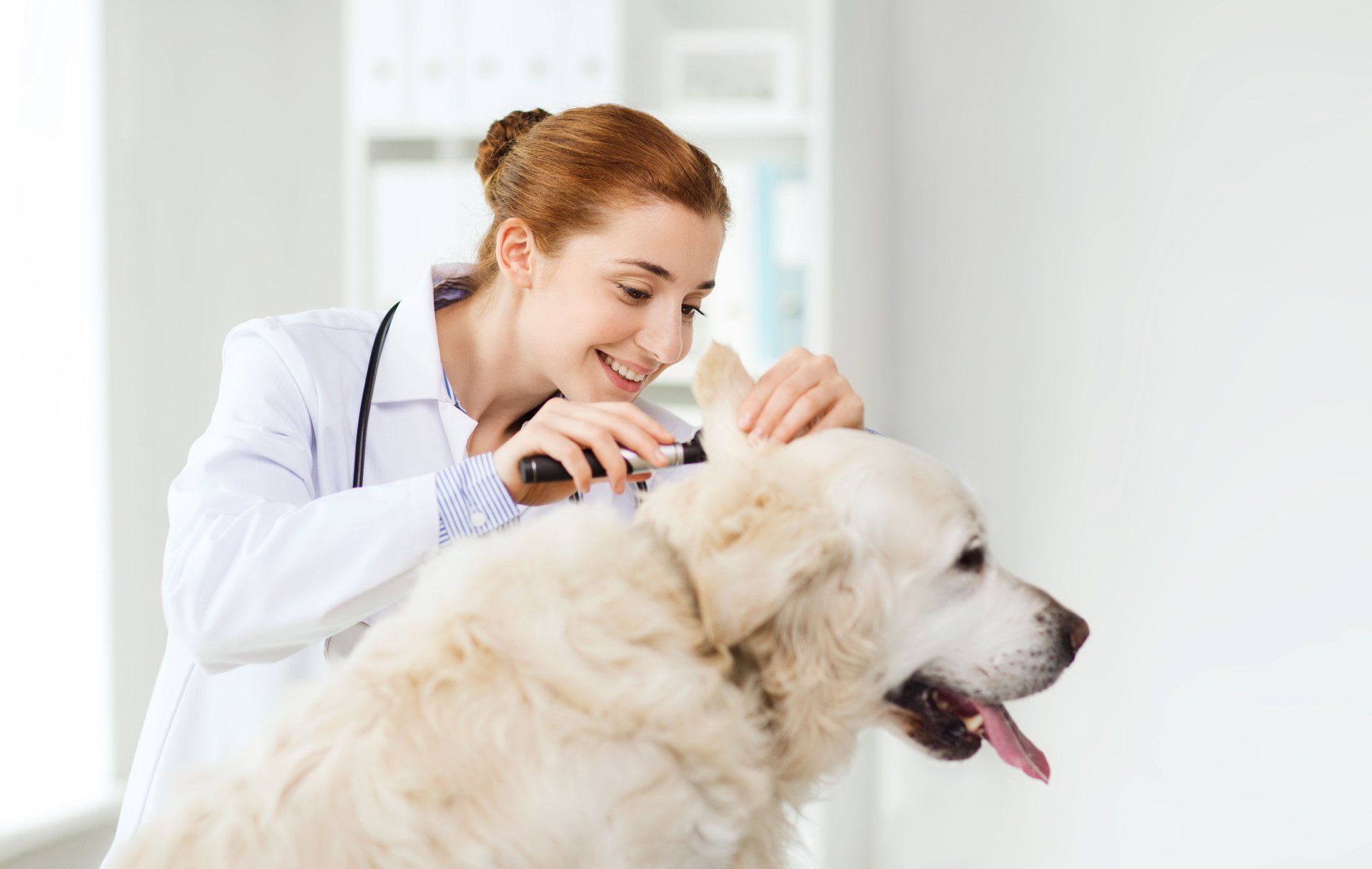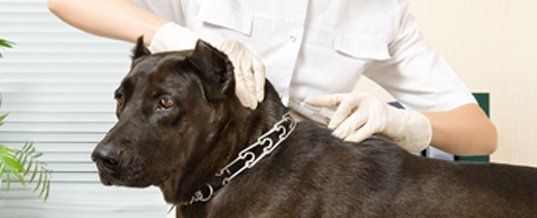Stop by for a Routine Checkup
One of the best things you can do for your pet is to keep him or her healthy. And one of the easiest and least expensive ways to do that is by bringing in your pet for regular exams and vaccinations. Dogs and cats, and other pets, age far faster than people, so significant changes in your pet’s health can happen in a short time. Wellness programs allow us to diagnose diseases and conditions early when they are easier to treat or manage.
Often, we can help prevent diseases entirely, just by ensuring that your pet has received appropriate vaccinations and preventives. We recommend that healthy adult dogs and cats visit Best Friends Veterinary Care once a year. Puppies, kittens, senior pets and pets with health issues or illnesses need more frequent checkups. We’ll work with you to create an individualized wellness program, including a vaccination and prevention protocol customized specifically to your pet. Call us today
to schedule your pet’s wellness exam.

Puppy and Kitten Wellness
Congratulations on your new family member! We look forward to helping you care for the new addition to your family. Our puppy and kitten wellness programs are designed to get your puppy or kitten started on the path to a long and healthy life with your family.
The first few months are a critical time in your puppy’s or kitten’s growth and development. We can provide the support and care necessary to help him or her grow into a well-mannered, healthy dog or cat, including information and advice on medical care, socialization, training - including house training or litter-box training, behavior and nutrition.
We recommend that you schedule your puppy or kitten for his or her first exam as soon as possible. Until your puppy or kitten has received a series of vaccines, he or she is susceptible to many serious but preventable diseases. Your puppy or kitten should begin a series of vaccinations between 6 and 8 weeks of age.
Puppy vaccinations will ensure that your new puppy is protected against rabies, canine distemper, canine adenovirus type 2, canine parvovirus, parainfluenza, bordetella - kennel cough - and other diseases, such as leptospirosis and Lyme disease, based on your puppy’s lifestyle.
Kitten vaccinations will ensure that your new kitten is protected against rabies, feline panleukopenia or distemper, feline calicivirus, and feline rhinotracheitis - feline influenza. Depending on your kitten’s risk, we may also recommend vaccinating him or her against feline leukemia virus (FeLV). Your kitten should also be tested for FeLV and feline immunodeficiency virus (FIV) before it is allowed to be in contact with other cats in your household.
Your new friend will also need to be tested and treated for parasites, which are extremely common in young dogs and cats.
Most puppies and kittens have roundworms, which are intestinal worms that can cause vomiting, diarrhea, and a potbellied appearance in puppies - although dogs can have worms without showing any symptoms, and vomiting, diarrhea, coughing and a potbellied appearance in kittens. It is important for puppies and kittens to be treated for roundworms and other parasites, not only to rid them of the infection but also to prevent you and the rest of your family from becoming infected. Roundworms are a zoonotic parasite, which means they can be transmitted from pets to people. Ensuring that your puppy and kitten is treated correctly, can keep your family safe from these and other parasites.

Adult Pet Wellness
Dogs and cats age much more quickly than humans, so it is even more critical for our pets to have regular exams. Additionally, the risks of many diseases such as arthritis, cancer, diabetes, heart disease, hormone disorders, kidney, and liver problems all increase with age.
Bringing your pet to see us for an annual wellness checkup can help ensure that your dog or cat is healthy and help us detect hidden conditions and diseases early. Detecting diseases early, before symptoms occur, can help to improve the prognosis of many diseases, decrease the cost of treatment, and help your pet live longer. Many dogs and cats are good at hiding signs that they are ill, so subtle changes in their health or behavior might be easy to overlook. With some diseases, your pet may show no signs or symptoms at all.
Since you spend the most time with your pet, you are the expert on your pet's status. If you notice any changes in your pet’s behavior or physical condition, let us know when you come for your visit. No question or concern is irrelevant, and we are here to answer your questions and concerns.
At your pet’s wellness visit, we'll perform a complete physical exam, checking your dog or cat from nose to tail. Your pet will also receive appropriate vaccinations and preventives. If necessary, we'll perform a diagnostic workup to determine the cause of any signs or symptoms you may have noticed. The workup may include blood, fecal and urine tests to check for parasites and underlying diseases. If needed, we may also recommend that your pet receive a dental cleaning or other treatment such as extractions. As your pet approaches his or her senior years, we'll recommend a baseline exam and diagnostic workup so we’ll know what is normal for your pet. This will help us to keep track of any changes in your pet as they occur.

Senior Wellness Care
As dogs and cats get older, they need more attention and specialized care. A senior wellness program can help your pet remain happy and healthy as he or she ages and help us diagnose any potential problems earlier, when they are easier to manage. Regular wellness exams can even help your pet live longer!
The designation of senior status depends on your pet’s size and breed. Cats generally live longer than dogs, and smaller breed dogs tend to live longer than larger breed dogs. We can help you determine if your pet is considered a “senior” pet. Before your pet reaches “senior” status, we recommend a baseline wellness exam and diagnostic workup which may include blood-work, fecal and urine tests, and possibly X-rays depending on your pet’s condition. This will help us determine what is normal or “baseline” for your pet, so we can track any changes as they occur. In most cases, your cat should have this visit at 8 years of age, and your dog at 7 years of age. Once your pet reaches “senior” status, he or she will lead a healthier life with more frequent, twice yearly or more frequently depending on your pet’s condition, exams and diagnostics.
Diagnosing certain conditions and diseases early is important throughout a pet’s life, but it becomes crucial when your dog or cat enters his or her senior years. The risks of arthritis, cancer, diabetes, heart disease, hormone disorders, kidney and liver problems all increase with age. Many dogs and cats may not show any signs or symptoms of disease, even serious diseases, until they are quite advanced.
We'll help your design a senior wellness plan tailored to your pet’s specific needs.
Many symptoms that are commonly attributed to age can be successfully managed or treated. We can also improve your pet’s quality of life in many ways: by identifying and preventing or reducing pain or other symptoms, by recommending an appropriate nutrition - diet and/or supplements and exercise plan or by suggesting environmental modifications to keep your pet comfortable and happy in his or her senior years.

Microchip Identification
Although we hope your pet is never lost, we want to provide you with the best chance of getting your pet home safely. With microchipping, we can. Microchipping is a permanent and safe way to identify your pet in the event that he or she becomes lost.
A microchip is a tiny device about the size and shape of a grain of rice. It is placed just under the loose skin at the back of the neck. When a lost cat or dog without an ID tag is found, a veterinarian, veterinary technician or shelter personnel can use a handheld microchip scanner to check for a chip. If the pet has a chip, it will transmit its ID number to the scanner via a low-frequency radio wave. The veterinary hospital or shelter then calls the chip manufacturer, receives the pet owner’s contact information and calls the owner.
Even the most diligent and responsible pet owners cannot always be sure their pet won’t get lost. A leash could break or slip out of your hand. Your pet could push through a screen door or window, or a contractor or friend might accidentally leave a door or gate open. Your cat can quickly slip out the door unnoticed when you are coming in with an armload of groceries. Your pet may be frightened and run off to hide in the event of a burglary or after storm damage.
We still recommend that you use a collar and ID tag along with a microchip to identify your pet. The ID tag is still a reliable identification method. Pets that are wearing tags with current contact information are more likely to not end up in shelters and tend to get home faster than those without tags. However, collars and ID tags are not permanent. Collars are often removed (overnight or for grooming) and pets can lose them. With a permanent microchip, your pet will have a much better chance of being identified and returned safely and quickly to you. Pets without a microchip that end up in shelters may be adopted out to another family or even euthanized.
We provide FREE adoption exams within two weeks of adoption.
Call 319-341-7111
"Just got back from my puppy Lena's first vet visit! She did so well! The ladies there are awesome and amazing with my Lena. I would 100% recommend Best Friends Veterinary Care to anyone looking for a vet. They were very helpful to me being a new fur-daddy! Thank you ladies for taking great care of my pup!"
Kyle Bennett, Facebook

